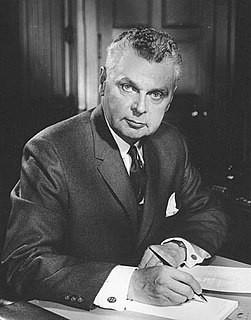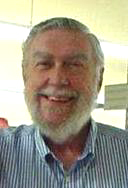A Quote by Cameron Dokey
I am free to choose my own actions. Indeed, like everyone else, I must be so. A good act that is compelled is not goodness at all, but merely force.
Related Quotes
It may be a procession of faithful failures that enriches the soil of godly success. Faithful actions are not religious acts. They are not even necessary actions undertaken by people of faith. Faithful actions, whether they are marked by success or they end in failure, are actions that are compelled by goodness.
You know, there are two good things in life, freedom of thought and freedom of action. In France you get freedom of action: you can do what you like and nobody bothers, but you must think like everybody else. In Germany you must do what everybody else does, but you may think as you choose. They're both very good things. I personally prefer freedom of thought. But in England you get neither: you're ground down by convention. You can't think as you like and you can't act as you like. That's because it's a democratic nation. I expect America's worse.
The world exists, not for what it means but for what it is. The purpose of mushrooms is to be mushrooms, wine is in order to be wine: things are precious before they are contributory. It is a false piety that walks through creation looking only for lessons which can be applied somewhere else. To be sure, God remains the greatest good; but, for all that, the world is still good in itself. Indeed, since He does not need it, its whole reason for being must lie in its own natural goodness; He has no use for it, only delight.
No one else can want for me. No one can substitute his act of will for mine. It does sometimes happen that someone very much wants me to want what he wants. This is the moment when the impassable frontier between him and me, which is drawn by free will, becomes most obvious. I may not want that which he wants me to want - and in this precisely I am incommunicabilis. I am, and I must be, independent in my actions. All human relationships are posited on this fact.
Though freedom and wealth are both good things which most of us desire and though we often need both to obtain what we wish, they still remain different. Whether or not I am my own master and can follow my own choice and whether the possibilities from which I must choose are many or few are two entirely different questions. The courtier living in the lap of luxury but at the beck and call of his prince may be much less free than a poor peasant or artisan, less able to live his own life and to choose his own opportunities for usefulness.
The Christian is free from all other human beings. He does not have to live over against others, controlled by their actions and responses. Rather, he lives according to Christ's commands. This is Christian freedom. It is a freedom unknown by others. It is not just when others do the things that we like that we act properly toward them; we are free to do good even when they don't because our actions are not dependent on their responses. It is the Lord Christ when we serve!


































